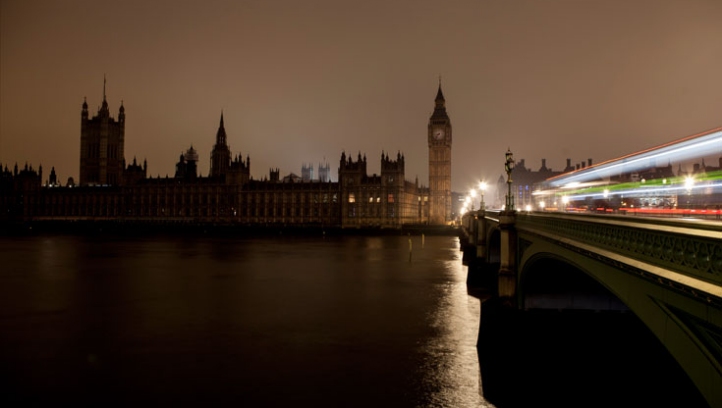The UK alone could avoid the use of more than nine million kWh of energy during this year’s Earth Hour, as landmarks across the globe turn off their lights in a bid to highlight the scale of global environmental challenges.

400 UK landmarks will take part in tonight’s spectacle, including Big Ben and the Houses of Parliament. Image: Vlad Balin/WWF-UK
Co-ordinated by WWF and taking part between 8.30pm and 9.30pm this evening (30 March), Earth hour will see businesses, governments and individuals across the world switch off their lights and electronic devices in a symbolic stand against issues such as climate change, air pollution and deforestation.
WWF has confirmed that more than 7,000 cities across 170+ countries will take part in the spectacle, with landmarks such as the Sydney Opera House, Empire State Building, Christ the Redeemer and Pyramids of Egypt all set to go dark for 60 minutes.
In the UK alone, more than 10 million individuals are set to take part in Earth Hour this year, as well as 7,000+ schools and 400+ monuments, including Big Ben and Palace of Westminster, Buckingham Palace, Tower Bridge, Edinburgh Castle and Cardiff Castle.
Tomorrow, on Saturday 30 March 8:30 p.m. local time, skylines around the world will go dark as millions of people celebrate #EarthHour to show their commitment to protecting the planet 🙂 This is our chance to switch off and speak up for nature. #Connect2Earth pic.twitter.com/hR2hzuTRKf
— Earth Hour (@earthhour) March 28, 2019
Thousands of businesses and other organisations have also committed to switching off for the hour, including energy giant E.ON, which will be powering down all of its UK offices and switching off projects such as the Citigen district heating hub in central London and the Blackburn Meadows biomass plant in Sheffield.
E.ON estimates that if every UK household were to take part in the event, more than 9.6 kWh of power could be saved – the equivalent to the amount of energy needed to boil a kettle 42.8 million times, or that generated by the average wind turbine between Easter and Christmas 2018.
But in order to generate lasting behaviour change in the wake of Earth Hour, WWF is encouraging participants to set an environmental sustainability pledge while their lights are out. Such commitments could be as small as an individual pledging to cycle to work or holiday closer to home, or as large as a multinational corporation unveiling new carbon or waste reduction goals.
“We know many people globally want to do something but are not sure where to start, so by coming together with millions of people around the world for Earth Hour, we create a strong, united voice that changes things for the better,” WWF Scotland’s director Lang Banks said.
“We’re the first generation that knows the extent of the damage we’re doing to our planet, and we could be the last that can do anything about it. That’s why I’m asking everyone to raise their voice for the planet by making a pledge and taking part in Earth Hour.”
Sarah George
